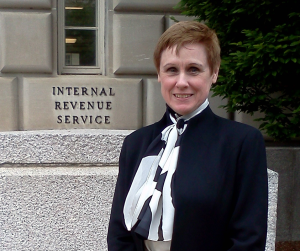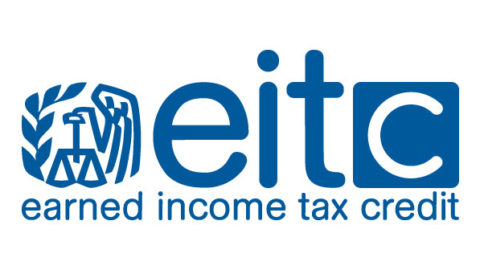
People often ask what it is like to have the IRS or California state tax authorities as our constant adversaries. The answer is simple. Even with highly contentious issues, whether for thousands or millions of dollars, or whether overseeing an audit or negotiating criminal sentencing terms, the parties share the same objective: A fair result.
While the practice is immensely gratifying due to its problem-solving opportunities, it would be more satisfying if ever greater numbers of taxpayers enjoyed a peaceful coexistence with federal and state tax authorities. Below are a few tips we offer to clients, as we steady them on a path toward never requiring our assistance again.
Rule number only: Be truthful.
Resist playing audit roulette. Tax returns are selected for audit based on several selection methodologies, including notable differences in your reported information from one year to the next, a mis-match of information Forms 1099 between those submitted to the Service and entries on your return, and returns that fail (or pass) a statistical scoring model designed to identify large, unusual or questionable items for examination. Or, your return preparer may be under inquiry, which leads to your own return being reviewed. Anecdotally, business owners are more likely to be audited, as are taxpayers who claim a home office deduction or the Earned Income Tax Credit. It is folly to take risks with your tax reporting on the theory you will not be audited.
Resist playing audit roulette.
Following on rule number one, do not tempt the tax assessment gods. The IRS may not be underfunded forever. In general, the IRS must assess a tax deficiency within three years of the return being filed. For understatements of income that are 25% greater than the income reported on the tax return, the statute of limitations for assessment is six years. The Service has an unlimited period of time to assess civil fraud penalties, which are 75% of the additional tax owed. Plus interest. Underreporting income and underpaying taxes is vastly more expensive than filing a truthful return.
Nothing personal!
The IRS and California want only the tax that is due, nothing more and nothing less. If tax returns or tax payments are late, penalties and interest may be due but only as accurately calculated. Both the federal and state governments prefer we self-assess accurately and timely. They are no happier about having to chase us than we are to hear from them. It is expensive and, as we know, they are underfunded.
In the same vein: Open the envelopes and read the correspondence you receive with IRS or California tax authority return addresses.
It may be good news! It may be a simple request for information. Crucially: It may be a proposed assessment of tax, for which you have a statutorily limited time to respond. Timely communication protects your due process rights. More generally, communication is cooperation. Cooperation is good faith. Good faith may buy extra time and possibly pre-empt levies that will empty your bank accounts.
Retained paper records may save you.
If you claim business or other deductions, be prepared to substantiate them in detail. The law and the courts are strict regarding requirements for original documentation for each (yes, each) claimed business expense deduction. Substantiation audits can result in legal and/or CPA fees of $15,000 to $25,000 for the unprepared. Keep annual concurrent files, including bank and credit card statements, for seven years after the date the return is filed. Expense logs or other documentation (e.g., business resolutions) created years after the fact for an audit are worse than useless. They corrode credibility.
Pay tax on time.
Filing an extension in September (for corporations) or October (for individuals) does not change the requirement to pay tax by March 15 or April 15. You have enough information by the original filing date to estimate the amount of tax due. Pay it, or as much as you can. If you cannot pay, check with the IRS about your options to pay the tax.
File even if you cannot pay.
Not everyone can pay the tax when the return is filed. Avoid failure to file penalties if you cannot pay the tax. Again, investigate your options to pay the tax over time.
Beware of intimidating telephone demands for tax payment.
The IRS will not call you and instruct you to pay tax using a stored-value cash card available from the local drugstore. Criminals will, however, and have been terrifying taxpayers for more than a year. The first contact from the IRS will be by letter. You will not be threatened with prison or deportation. The exception to this truth is when a taxpayer is being investigated or has been indicted for criminal tax evasion. Then, at least two special agents appear at the door. These agents will not ask you to pay tax by a stored-value cash card. Just hang up on anyone who claims to be with the Service and makes frightening demands. (If you believe you may have tax problems, initiate the call to the IRS for more information: 800-829-1040, 7:00 a.m. to 7:00 p.m.)
Help is available.
If you do have issues with the IRS or California tax authorities, help is at hand. The Bay Area offers a robust community of tax attorneys with tax controversy expertise to guide you to calm waters. Better yet, consult a tax attorney for planning advice to avoid problems and, possibly, penalties related to the positions you decide to take on your tax return. Tap into the rich tax legal resources the BASF community provides.
About the author:
Abkin Law provides legal services to taxpayers with civil and criminal federal and state tax issues, involving income or estate tax, including representation during audit and investigation, Tax Court or District Court litigation, and criminal sentencing.





